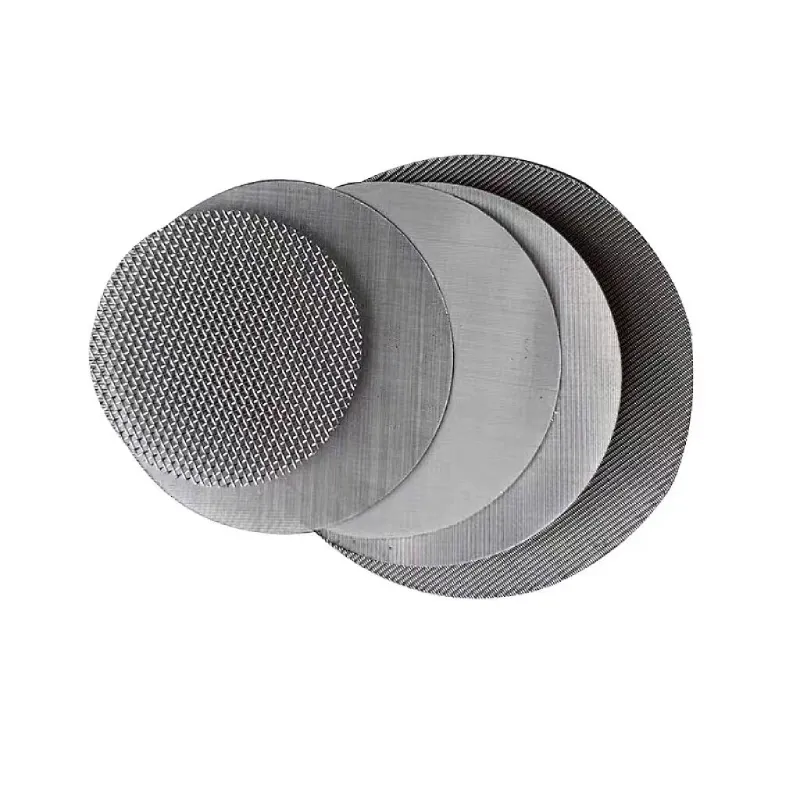expanded metal fabrication
Expanded Metal Fabrication A Versatile Solution for Modern Needs
Expanded metal fabrication is a manufacturing process that transforms flat sheets of metal into a mesh-like material through the techniques of slitting and stretching. This remarkable method provides numerous applications across various industries, with its unique structural properties making it an ideal choice for architectural design, security, filtration, and other specialized uses.
The process of creating expanded metal begins with a solid sheet of metal, typically made from materials like steel, aluminum, or stainless steel. This flat sheet undergoes precision cuts at regular intervals. Once the slits are created, the sheet is then stretched, which expands the metal into a series of interconnected diamonds or hexagonal shapes. This results in a mesh structure that retains the metal's strength while significantly reducing its weight. The end product is durable, lightweight, and highly versatile, which are essential characteristics for various applications.
One of the primary advantages of expanded metal is its ability to maintain structural integrity while providing openings for light, air, and moisture. This characteristic makes it an excellent choice for applications in architecture and construction. Architects and designers have embraced expanded metal for facades, partitions, and decorative elements due to its aesthetic appeal and functional benefits. The patterns created by the expansion process add a unique visual element to buildings, allowing for innovative designs that encourage natural ventilation and daylighting.
In addition to its architectural uses, expanded metal is widely utilized in security applications. The mesh-like structure serves as a deterrent to intruders while allowing visibility and airflow. It is commonly used in fencing, security screens, and protective barriers in commercial and residential settings. The durability and corrosion resistance of materials like stainless steel make expanded metal an attractive option for outdoor applications, where exposure to the elements can compromise weaker materials.
expanded metal fabrication

Further extending its utility, expanded metal finds applications in industrial settings, particularly in filtration and separation processes. The specific hole sizes and shapes can be customized to suit various filtration requirements, providing efficient solutions for industries ranging from food and beverage to pharmaceuticals. By allowing fluids to pass through while capturing solids, expanded metal filters play a crucial role in maintaining product quality and ensuring operational efficiency.
Another significant aspect of expanded metal fabrication is its eco-friendly nature. As industries move towards more sustainable practices, the ability to create products that are not only efficient but also recyclable becomes increasingly important. Expanded metal is often made from pre-consumer recycled materials, and its manufacturing process generates minimal waste compared to other fabrication methods. This aligns with the growing demand for materials that contribute to circular economy principles.
While the advantages of expanded metal are substantial, it is essential to consider aspects such as cost and availability when choosing this material for specific projects. The price can vary based on the type of metal used, the gauge or thickness of the sheet, and the size of the openings created during fabrication. However, for many applications, the benefits far outweigh the costs, particularly when considering the long-term durability and performance of expanded metal products.
The advancements in technology have also enhanced the capabilities of expanded metal fabrication. With the integration of computer-aided design (CAD) software and modern machinery, manufacturers can produce highly customized and precise expanded metal sheets efficiently. This evolution in the fabrication process has opened doors for designers and engineers to explore new innovations and applications that were previously unattainable.
In conclusion, expanded metal fabrication offers a multitude of advantages across diverse industries. Its unique combination of strength, lightweight properties, and aesthetic potential makes it a favored material for everything from architectural projects to industrial applications. As the demand for versatile and sustainable materials continues to grow, expanded metal stands out as a practical solution that meets the needs of modern society. Its adaptability, coupled with ongoing advancements in fabrication technology, ensures expanded metal will remain a key player in the manufacturing landscape for years to come.
-
The Versatility of Stainless Steel Wire MeshNewsNov.01,2024
-
The Role and Types of Sun Shade SolutionsNewsNov.01,2024
-
Safeguard Your Space with Effective Bird Protection SolutionsNewsNov.01,2024
-
Protect Your Garden with Innovative Insect-Proof SolutionsNewsNov.01,2024
-
Innovative Solutions for Construction NeedsNewsNov.01,2024
-
Effective Bird Control Solutions for Every NeedNewsNov.01,2024












